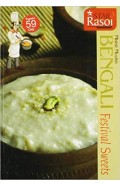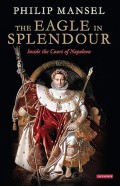The Sabres of Paradise - Conquest and Vengeance in the Caucasus
By: Lesley Blanch
-
Rs 8,995.50
- Rs 9,995.00
- 10%
You save Rs 999.50.
Due to constant currency fluctuation, prices are subject to change with or without notice.
A dramatist by training, Lesley's Blanch's bold work of narrative non fiction – the definitive biography of Imam Shamyl – builds the story scene by scene of two worlds brought into sudden juxtaposition. It is the product of six years of diligent and scholarly research done in Russia and the Caucasus, including tracing his descendants in Turkey and Egypt. During the Caucasian Wars of Independence of 1834-1859, the warring mountain tribes of Daghestan and Chechnya united under the charismatic leadership of the Muslim chieftain known as the ‘Lion of Daghestan’. For years, Shamyl defied his enemy, the Tsar, who had taken his eldest son as a hostage to St Petersburg. Shamyl captured in turn two Georgian princesses (from the Tzarina’s entourage), a French governess, and the children, and kept them in his harem until they could be exchanged for his son.
Also a historical narrative, there are beautiful descriptions of the Caucasus – a region of supreme natural beauty and mighty mountain ranges – and the campaigns in which Lermontov and Tolstoy participated.
BRIAN ALDISS ― “A book as thick with flavour as roast wild boar, tusks and all. One of the most nutritious books I have ever read.”
PHILIP MARSDEN ― “Like Tolstoy’s, her sense of history is ultimately convincing not because of any sweeping theses, but because of its particularities, the quirks of individuals and their personal narratives, their deluded ambitions, their vanities and passions.”
HAMISH BOWLES in Jacqueline Kennedy: The White House Years ― “Jacqueline Kennedy and Khrushchev maintained a spirited badinage through dinner. Mrs Kennedy had recently read The Sabres of Paradise, Lesley Blanch’s dashing history of the Muslim tribes' resistance to Russian expansionism in the Caucasus, and attempted to engage the Soviet premier in conversation on the subject. He responded with the comparative numbers of teachers per capita in the Soviet and Czarist Ukraine. She cut him off with the playful riposte, “Oh, Mr Chairman, don’t bore me with statistics.”
NEW YORK TIMES BOOK REVIEW ― “I can imagine no better introduction to modern Russia.”
LE MONDE ― “A magnificent historical drama; a marvellous, impassioned biography of Imam Shamyl.”
AUTHOR BIO Lesley Blanch was a distinguished writer, artist, drama critic, and features editor of British Vogue during World War Two. In 1946 she sailed from England to travel the world with her diplomat-novelist husband, Romain Gary. By the time they reached Hollywood in the 1950s they were literary celebrities. Their marriage of eighteen years ended when Gary left her for the young actress, Jean Seberg. Blanch headed East to travel across Siberia, Outer Mongolia, Turkey, Iran, Samarkand, Afghanistan, Egypt, the Sahara. Born in 1904, she died aged 103, having gone from being a household name to a mysterious and neglected living legend. The author of twelve books, including Journey into the Mind's Eye, Pierre Loti, The Sabres of Paradise, and Round the World in Eighty Dishes, her memoirs – On the Wilder Shores of Love: A Bohemian Life – are published by Virago and La Table Ronde in France. A follow up volume of writings Far To Go and Many To Love: People and Places is published by Quartet Books.
A dramatist by training, Lesley's Blanch's bold work of narrative non fiction – the definitive biography of Imam Shamyl – builds the story scene by scene of two worlds brought into sudden juxtaposition. It is the product of six years of diligent and scholarly research done in Russia and the Caucasus, including tracing his descendants in Turkey and Egypt. During the Caucasian Wars of Independence of 1834-1859, the warring mountain tribes of Daghestan and Chechnya united under the charismatic leadership of the Muslim chieftain known as the ‘Lion of Daghestan’. For years, Shamyl defied his enemy, the Tsar, who had taken his eldest son as a hostage to St Petersburg. Shamyl captured in turn two Georgian princesses (from the Tzarina’s entourage), a French governess, and the children, and kept them in his harem until they could be exchanged for his son.
Also a historical narrative, there are beautiful descriptions of the Caucasus – a region of supreme natural beauty and mighty mountain ranges – and the campaigns in which Lermontov and Tolstoy participated.
BRIAN ALDISS ― “A book as thick with flavour as roast wild boar, tusks and all. One of the most nutritious books I have ever read.”
PHILIP MARSDEN ― “Like Tolstoy’s, her sense of history is ultimately convincing not because of any sweeping theses, but because of its particularities, the quirks of individuals and their personal narratives, their deluded ambitions, their vanities and passions.”
HAMISH BOWLES in Jacqueline Kennedy: The White House Years ― “Jacqueline Kennedy and Khrushchev maintained a spirited badinage through dinner. Mrs Kennedy had recently read The Sabres of Paradise, Lesley Blanch’s dashing history of the Muslim tribes' resistance to Russian expansionism in the Caucasus, and attempted to engage the Soviet premier in conversation on the subject. He responded with the comparative numbers of teachers per capita in the Soviet and Czarist Ukraine. She cut him off with the playful riposte, “Oh, Mr Chairman, don’t bore me with statistics.”
NEW YORK TIMES BOOK REVIEW ― “I can imagine no better introduction to modern Russia.”
LE MONDE ― “A magnificent historical drama; a marvellous, impassioned biography of Imam Shamyl.”
AUTHOR BIO Lesley Blanch was a distinguished writer, artist, drama critic, and features editor of British Vogue during World War Two. In 1946 she sailed from England to travel the world with her diplomat-novelist husband, Romain Gary. By the time they reached Hollywood in the 1950s they were literary celebrities. Their marriage of eighteen years ended when Gary left her for the young actress, Jean Seberg. Blanch headed East to travel across Siberia, Outer Mongolia, Turkey, Iran, Samarkand, Afghanistan, Egypt, the Sahara. Born in 1904, she died aged 103, having gone from being a household name to a mysterious and neglected living legend. The author of twelve books, including Journey into the Mind's Eye, Pierre Loti, The Sabres of Paradise, and Round the World in Eighty Dishes, her memoirs – On the Wilder Shores of Love: A Bohemian Life – are published by Virago and La Table Ronde in France. A follow up volume of writings Far To Go and Many To Love: People and Places is published by Quartet Books.
The Sabres of Paradise - Conquest and Vengeance in the Caucasus
By: Lesley Blanch
Rs 8,995.50 Rs 9,995.00 Ex Tax :Rs 8,995.50
Zubin Mehta: A Musical Journey (An Authorized Biography)
By: VOID - Bakhtiar K. Dadabhoy
Rs 892.50 Rs 1,050.00 Ex Tax :Rs 892.50
The Golden Road - How Ancient India Transformed the World
By: William Dalrymple
Rs 4,135.50 Rs 4,595.00 Ex Tax :Rs 4,135.50
The Better Angels of Our Nature A History of Violence and Humanity
By: Steven Pinker
Rs 4,045.50 Rs 4,495.00 Ex Tax :Rs 4,045.50
Percy Jackson and the Olympians: Wrath of the Triple Goddess (Percy Jackson and The Olympians, 7)
By: Rick Riordan
Rs 2,425.50 Rs 2,695.00 Ex Tax :Rs 2,425.50
The Origins of Political Order From Prehuman Times to the French RevolutioN
By: Francis Fukuyama
Rs 4,045.50 Rs 4,495.00 Ex Tax :Rs 4,045.50
Manning Up: How the Rise of Women Has Turned Men into Boys
By: Kay Hymowitz
Rs 845.75 Rs 995.00 Ex Tax :Rs 845.75
The Obama Syndrome: Surrender At Home War Abroad
By: Tariq Ali
Rs 1,100.75 Rs 1,295.00 Ex Tax :Rs 1,100.75
The Quest For Meaning: Developing A Philosophy Of Pluralism
By: Tariq Ramadan
Rs 1,185.75 Rs 1,395.00 Ex Tax :Rs 1,185.75
The Golden Road - How Ancient India Transformed the World
By: William Dalrymple
Rs 4,135.50 Rs 4,595.00 Ex Tax :Rs 4,135.50
The Better Angels of Our Nature A History of Violence and Humanity
By: Steven Pinker
Rs 4,045.50 Rs 4,495.00 Ex Tax :Rs 4,045.50
Percy Jackson and the Olympians: Wrath of the Triple Goddess (Percy Jackson and The Olympians, 7)
By: Rick Riordan
Rs 2,425.50 Rs 2,695.00 Ex Tax :Rs 2,425.50
The Eagle in Splendour - Inside the Court of Napoleon
By: Philip Mansel
Rs 2,035.75 Rs 2,395.00 Ex Tax :Rs 2,035.75
Zubin Mehta: A Musical Journey (An Authorized Biography)
By: VOID - Bakhtiar K. Dadabhoy
Rs 892.50 Rs 1,050.00 Ex Tax :Rs 892.50
The Sabres of Paradise - Conquest and Vengeance in the Caucasus
By: Lesley Blanch
Rs 8,995.50 Rs 9,995.00 Ex Tax :Rs 8,995.50
The Golden Road - How Ancient India Transformed the World
By: William Dalrymple
Rs 4,135.50 Rs 4,595.00 Ex Tax :Rs 4,135.50
The Better Angels of Our Nature A History of Violence and Humanity
By: Steven Pinker
Rs 4,045.50 Rs 4,495.00 Ex Tax :Rs 4,045.50
Percy Jackson and the Olympians: Wrath of the Triple Goddess (Percy Jackson and The Olympians, 7)
By: Rick Riordan
Rs 2,425.50 Rs 2,695.00 Ex Tax :Rs 2,425.50














-120x187.jpg?q6)





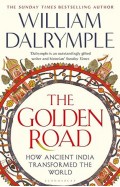
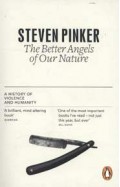

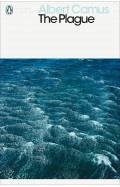


-120x187.jpg?q6)







